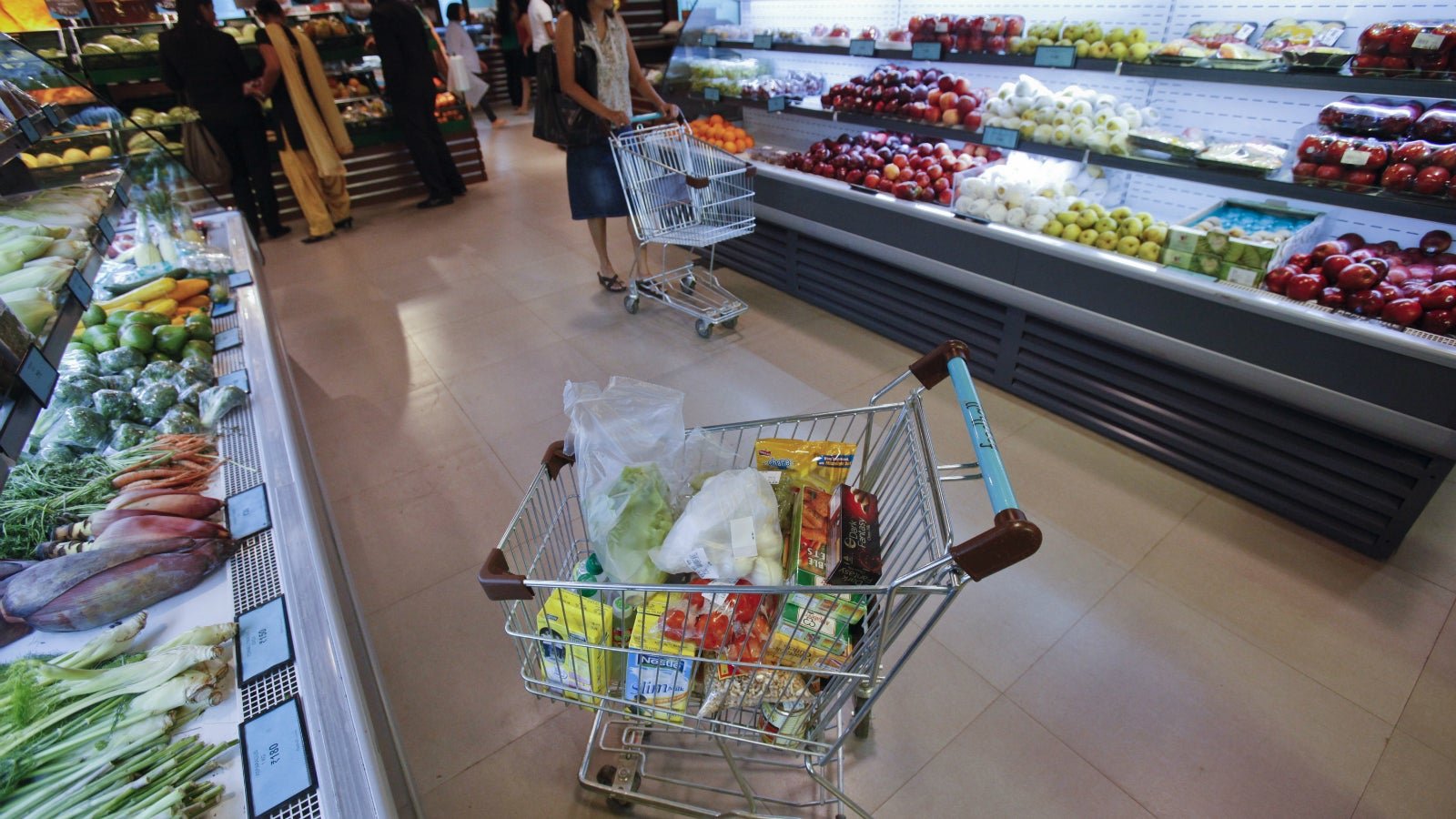Once a darling of investors, an Indian supermarket chain is getting hammered on the stock market
Most things at the local DMart supermarket come at a discount—unlike its stock price.


Most things at the local DMart supermarket come at a discount—unlike its stock price.
Since its debut in March 2017, shares of Avenue Supermarts, which owns and runs the DMart supermarkets, have mostly moved north. Indeed, it is one of India’s priciest retail stocks. The share, listed at Rs604 apiece on BSE, more than doubled to close at Rs1,410 on Oct. 12.
On Monday (Oct. 15), though, investors turned cautious after its earnings for the July-September quarter failed to impress. The share slumped over 6% after it reported lower-than-expected gross margins and a miss in earnings before interest, tax, depreciation, and amortisation (or EBITDA—a measure of a company’s operational efficiency).
This was the stock’s single-largest day drop since it listed on the bourses.
Broking firms have taken note of the company’s inability to grow at a pace that justifies its rich stock valuation. Some are now downgrading the stock.
Performance till now
To be sure, DMart is only struggling to keep up with investor expectations. After all, the company has showcased stellar financial performance till now.
For fiscal 2016, DMart clocked a net profit of Rs321.2 crore ($43 million) on a turnover of Rs8,606 crore, according to the company’s red herring prospectus (pdf), a document filed before an initial public offering (IPO). In fiscal 2018 (pdf), net profit and turnover ballooned to Rs785 crore and Rs15,009 crore, respectively.
Even for the quarter ended September 2018, revenue stood at Rs4,870 crore, up 38% from last year. Profit grew 18% to Rs230 crore.
Gross profit margins, however, stood at 14.3%—the lowest in the last 10 quarters.
DMart’s margins took a beating after it cut prices to offset competition from online retailers and traditional brick-and-mortar rivals.
“(The DMart) management’s increasing focus on sales growth comes in light of increasing competitive intensity from Big Bazaar, Reliance Retail, Big Basket, and Walmart-Flipkart, among others,” brokerage firm Edelweiss said in a research note on Oct. 15. DMart, it added, will find it difficult to sustain its high EBITDA margins, given its strategy of low-cost retailing.
Grocery retailing is a low-margin business, leaving little scope for DMart to drop prices. “In a recent analysts’ meet, (DMart’s) management had highlighted that its high EBITDA margin may not be sustainable as the company plans to prioritise price competitiveness versus margin improvements,” broking firm Motilal Oswal said in an Oct. 15 report.
So what is being challenged is the low-prices and value-offers strategy that DMart has perfected over 16 years.
Disrupted?
DMart, promoted by billionaire Radhakishan Damani, started out as a single store in Mumbai’s Powai area in 2002. It has since grown to 160 outlets spread across 45 cities in India, selling groceries, vegetables, electronics, apparel, and household goods, usually cheaper than the competition.
When it listed on the bourses with much pomp last year, it rode on its popularity as a profitable retail chain. Most organised retailers in the country, who expanded too fast and ran up high operating costs, could not have claimed the same.
While DMart continues to beat the competition on profitability, analysts reckon that increasing competition from deep-pocketed online retailers could spell trouble for it. ”Though DMart will be one of the key beneficiaries in the organised grocery retail space, its trajectory of earnings growth will taper down viz-a-viz valuations, which will keep risk-reward unfavourable,” brokerage firm Jefferies said in a note dated Oct. 15.
Investor exuberance took Avenue Supermart’s market capitalisation past the Rs1 lakh crore mark in June this year. That euphoria has since tempered down. The company was worth just over Rs80,000 crore at the end of trade on Tuesday.
In the period since DMart listed, much has changed in Indian retail.
Earlier this year, American retail giant Walmart spent a massive $16 billion to buy Flipkart, marking its intentions of garnering a share of Indian retail. Online giant Amazon, meanwhile, is inching closer to furthering its grocery play in India.
Avenue Supermart’s latest quarterly earnings have made these realities evident.